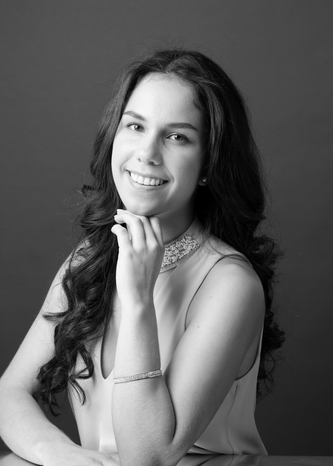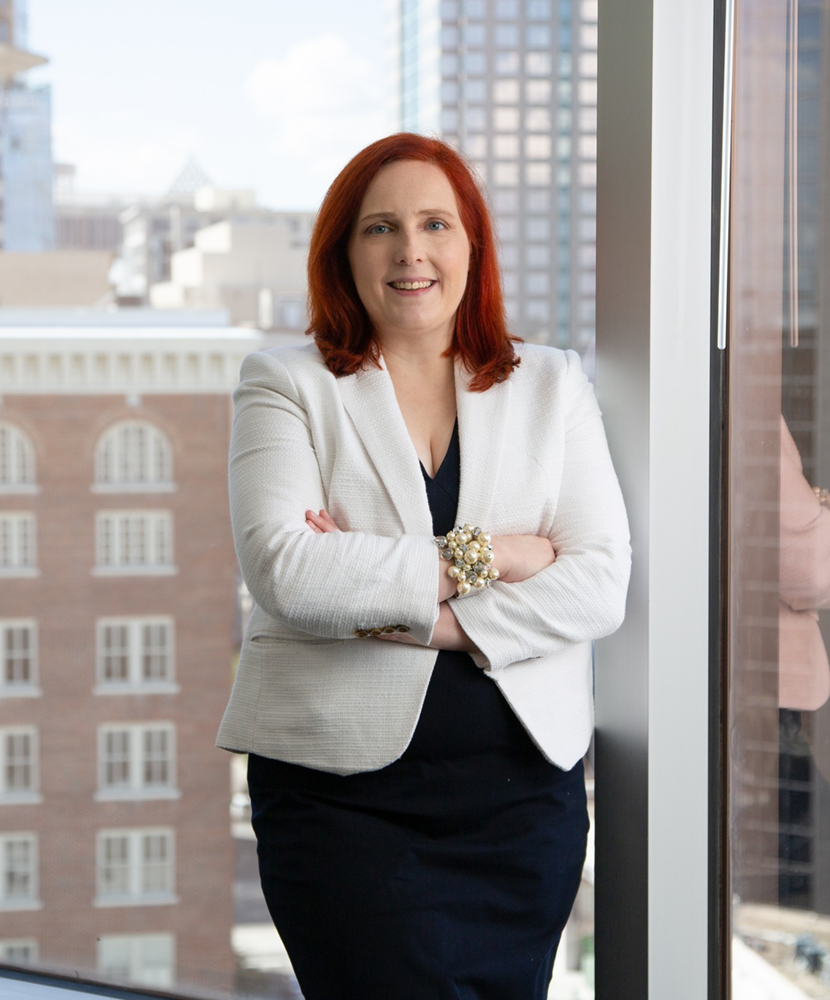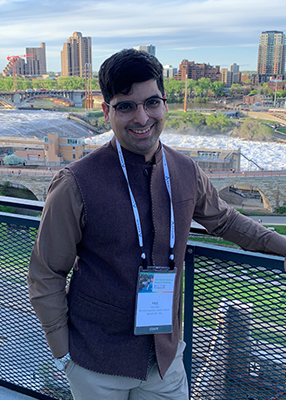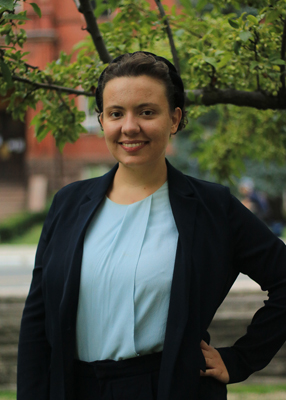Claudia Martinez

Why did you choose your program at UBC and what did you enjoy most about it?
My passion for philosophy began in PHIL 101 (Introduction to Philosophy) thanks to an exceptional professor I had, who is now teaching at Harvard. After taking this introductory class, I stuck with the program because of UBC’s diverse array of philosophy courses, all with extremely knowledgeable professors to teach them.
In my second year, I decided to combine my major in philosophy with a minor in my second passion, music, and entered UBC’s School of Music. To no surprise, this was another department filled with phenomenal professors.
Both my major and minor broadened my intellectual horizons. I felt they offered me a lot of opportunity to be creative and build out the experience I needed as a university student. Studying what I loved contributed enormously to making my time at UBC truly memorable.
What were some of your most meaningful experiences at UBC?
Choosing to study subjects that truly interested me added a lot to my experience at UBC. Beyond academics, living on campus was significant, too. It allowed me to fully engage in activities that UBC offered, and to embrace the natural beauty surrounding UBC’s campus. I was also really into exploring food spots and cafes across campus.
What choices did you make at UBC that contributed to your career success / journey?
Saying yes during your time in school is important! Get involved and meet new people. Building my network through involvement in various initiatives at UBC contributed to the current network I have in New York City. So many people live in New York, and I still run into people from UBC.
What was your first job after graduation and what other jobs did you have before your current position?
After graduating from UBC, I went straight to law school at Brooklyn Law School. I held several internships during and just after my graduate studies including for the New York City Department of Transportation and New York County Supreme Court. The work spanned reviewing government projects and conducting environmental regulatory and compliance type assessments.
I also interned with a judge, did pro bono work through New York University, and held a role at the New York City Department of Investigation.
Is your current career path as you originally intended? What challenges did you face in launching your career?
My career path definitely aligns with my initial aspirations. After graduating from UBC, I pursued becoming a lawyer. Then, after passing the New York Bar exam, I began my career in civil rights litigation, an area I was passionate about.
Litigation posed a distinct challenge due to its adversarial nature, involving constant ongoing opposition. Successfully navigating this process requires patience. The challenges of litigation led me to pivot into transactional work and I now represent New York City in bond issuances.
My biggest obstacle was adjusting to the initial challenges of entering the professional workforce, navigating the competitive job market, and accepting a less-than-ideal position. Despite this, my journey has culminated in a fulfilling career so far. Everything is a stepping stone for growth.
What do you like about your current job and what do you find challenging? How does it relate to your degree?
I love the collaborative nature of the work I do. Everyone pitches in to close the deals we are working on.
One challenge is staying apprised of the ever-changing market, but this can also be fun and keeps the work interesting. Sometimes I also have to do math (boo!). The fast-paced landscape, while demanding, also keeps the professional journey engaging.
From your experience, what has been the value of having an Arts degree?
In my experience, having an Arts degree has been priceless. It nurtured my natural curiosity and desire to delve into diverse realms of knowledge, which I continue to do beyond my day-to-day (finance and law). I still read philosophy and compose music.
Aside from the practical, my Arts degree helped me build a well-rounded perspective on life. Also, it doesn’t hurt for networking! Everyone, generally speaking, appreciates the arts.
What advice would you give to students and alumni interested in breaking into your industry?
Be nice and make genuine connections.
What advice would you give your graduating self?
Don’t fret it.
Claudia Martinez



Why did you choose your program at UBC and what did you enjoy most about it?
My passion for philosophy began in PHIL 101 (Introduction to Philosophy) thanks to an exceptional professor I had, who is now teaching at Harvard. After taking this introductory class, I stuck with the program because of UBC’s diverse array of philosophy courses, all with extremely knowledgeable professors to teach them.
In my second year, I decided to combine my major in philosophy with a minor in my second passion, music, and entered UBC’s School of Music. To no surprise, this was another department filled with phenomenal professors.
Both my major and minor broadened my intellectual horizons. I felt they offered me a lot of opportunity to be creative and build out the experience I needed as a university student. Studying what I loved contributed enormously to making my time at UBC truly memorable.
What were some of your most meaningful experiences at UBC?
Choosing to study subjects that truly interested me added a lot to my experience at UBC. Beyond academics, living on campus was significant, too. It allowed me to fully engage in activities that UBC offered, and to embrace the natural beauty surrounding UBC’s campus. I was also really into exploring food spots and cafes across campus.
What choices did you make at UBC that contributed to your career success / journey?
Saying yes during your time in school is important! Get involved and meet new people. Building my network through involvement in various initiatives at UBC contributed to the current network I have in New York City. So many people live in New York, and I still run into people from UBC.
What was your first job after graduation and what other jobs did you have before your current position?
After graduating from UBC, I went straight to law school at Brooklyn Law School. I held several internships during and just after my graduate studies including for the New York City Department of Transportation and New York County Supreme Court. The work spanned reviewing government projects and conducting environmental regulatory and compliance type assessments.
I also interned with a judge, did pro bono work through New York University, and held a role at the New York City Department of Investigation.
Is your current career path as you originally intended? What challenges did you face in launching your career?
My career path definitely aligns with my initial aspirations. After graduating from UBC, I pursued becoming a lawyer. Then, after passing the New York Bar exam, I began my career in civil rights litigation, an area I was passionate about.
Litigation posed a distinct challenge due to its adversarial nature, involving constant ongoing opposition. Successfully navigating this process requires patience. The challenges of litigation led me to pivot into transactional work and I now represent New York City in bond issuances.
My biggest obstacle was adjusting to the initial challenges of entering the professional workforce, navigating the competitive job market, and accepting a less-than-ideal position. Despite this, my journey has culminated in a fulfilling career so far. Everything is a stepping stone for growth.
What do you like about your current job and what do you find challenging? How does it relate to your degree?
I love the collaborative nature of the work I do. Everyone pitches in to close the deals we are working on.
One challenge is staying apprised of the ever-changing market, but this can also be fun and keeps the work interesting. Sometimes I also have to do math (boo!). The fast-paced landscape, while demanding, also keeps the professional journey engaging.
From your experience, what has been the value of having an Arts degree?
In my experience, having an Arts degree has been priceless. It nurtured my natural curiosity and desire to delve into diverse realms of knowledge, which I continue to do beyond my day-to-day (finance and law). I still read philosophy and compose music.
Aside from the practical, my Arts degree helped me build a well-rounded perspective on life. Also, it doesn’t hurt for networking! Everyone, generally speaking, appreciates the arts.
What advice would you give to students and alumni interested in breaking into your industry?
Be nice and make genuine connections.
What advice would you give your graduating self?
Don’t fret it.



